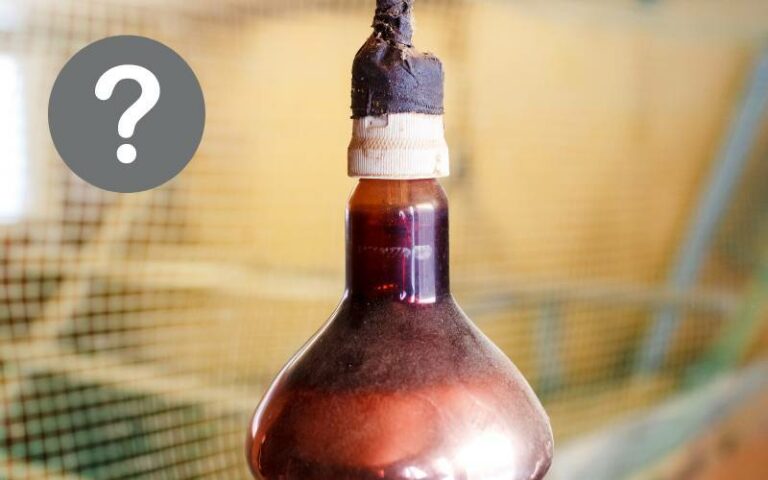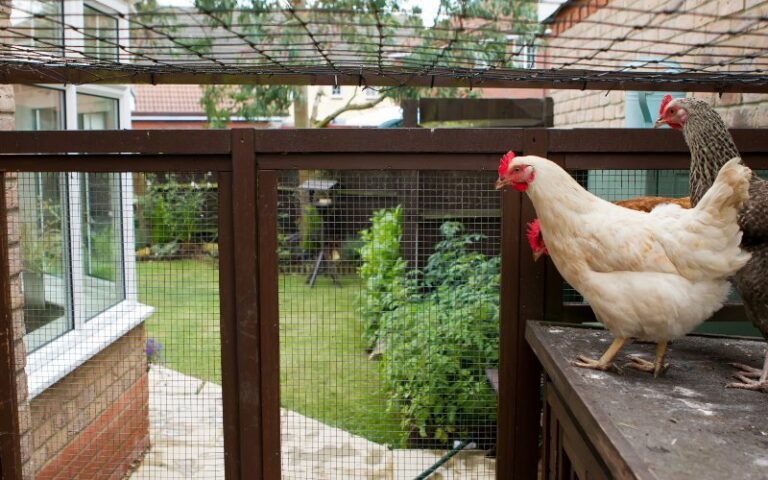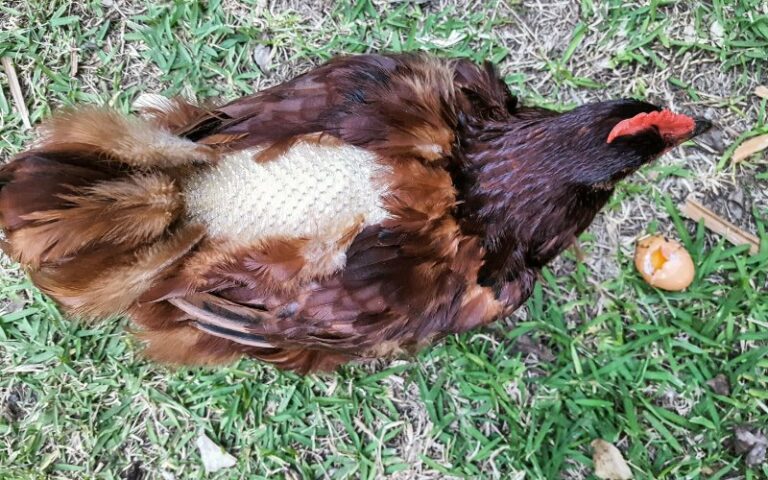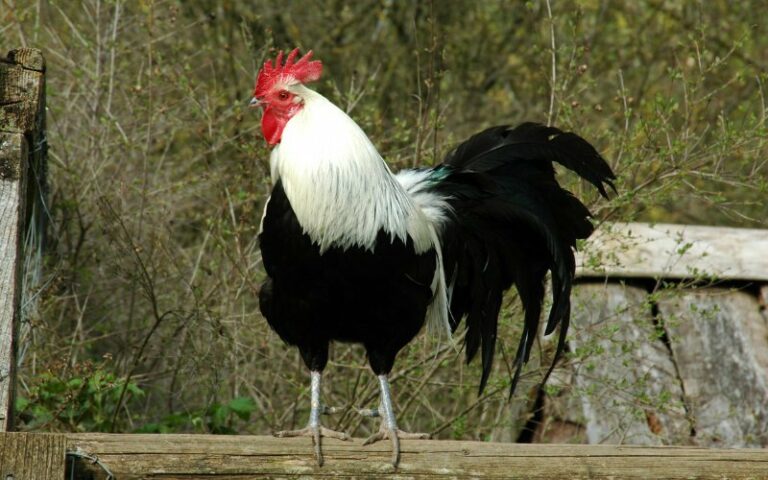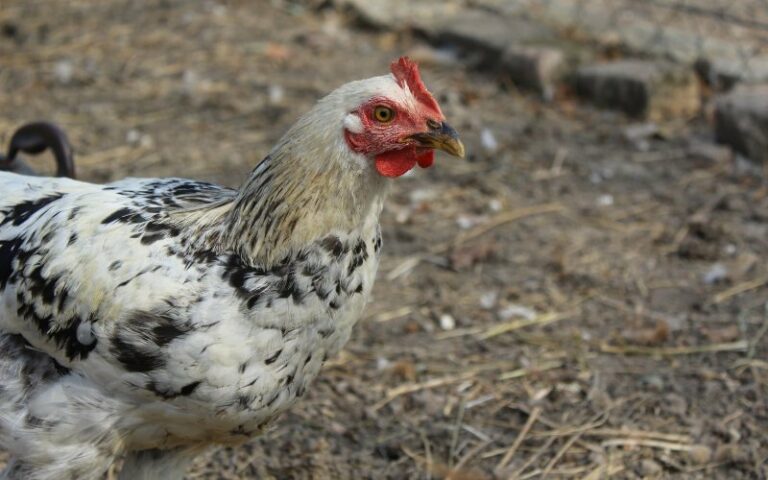Green Chicken Poop (Causes + What to Do)
I’ve only ever met one person who liked the smell of poop – specifically horse poop. For the average homesteader, myself included, examining any sort of manure really isn’t the most enjoyable part of farming. But it’s quite an important one. Of course, poop naturally comes along with every type of farm animal, including chickens. As a bonus, poop can also be quite a practical and inexpensive fertilizer for the garden.
Poop may look different depending on the time of year, but it should always look healthy. Think of it as an indicator of potential problems. If you know what chicken poop typically looks like, changes in color, like green and blue chicken poop, may warn you of an infection before it can spread to your whole flock.
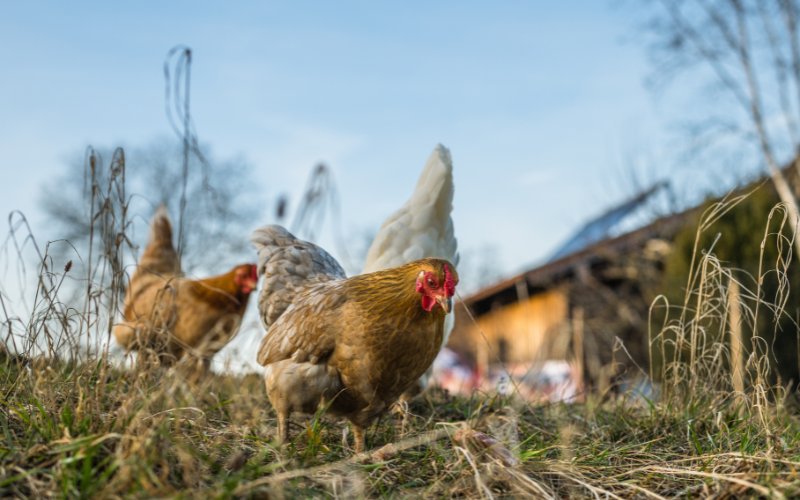
What Does Green Chicken Poop Mean? Should I Be Concerned? (The Short Answer)
If you free-range your chickens and they seem pretty healthy, green chicken poop is normal – it’s probably caused by the greens, veggies, and leaves they recently consumed.
However, green chicken poop may also be caused by a sickness such as Newcastle disease or fowl cholera. Poop may also turn green when a chicken isn’t eating or drinking enough.
What Causes Green Chicken Poop (3 Possibilities)
Whether you were worried about it or not, the first time you saw green chicken poop was probably a surprise; and, like me, you probably wanted to know the reason why. With some light research, I’ve found that light and dark green chicken poop could be both quite normal or a reason to worry.
Your Chickens Are Eating Their Veggies
If you free-range your chickens, they probably eat a lot of vegetable material like leaves, grass, and seeds. Veggies like these can cause bright green chicken poop. This is likely the cause of the color if your chickens don’t appear to be suffering from any other symptoms, like lethargy or a decrease in egg production.
Chickens Aren’t Eating Or Drinking Well
Chickens may refuse to eat or drink enough for a variety of reasons, whether they’re being bullied by their coop mates, they’re not receiving enough grain for their age and size, or they’re suffering from a disease. Green poop could be a symptom of this problem.
The science behind this is simple: bile is secreted to the stomach to digest feed that isn’t there. As a result, it gets passed with the feces, causing green-colored chicken poop.
Your Chicken Is Suffering From a Disease
If your chickens have watery green chicken poop, it’s likely that they’re suffering from some disease. Immediately remove affected chickens from the flock and try to determine the disease they have by watching for other symptoms and/or consulting a vet.
What to Do If You See Green Chicken Poop (4 Ideas)
If you start to notice green chicken poop, first try to figure out the reason to determine what your plan of action will be. If it’s simply veggies that are causing the color, your chickens are fine; but if they’re suffering from a sickness, you should get help.
Keep An Eye On Your Chickens’ Poop
If you think green poop is simply the result of free-ranging your chickens, you don’t have to do anything. However, it’s a good idea to keep an eye on your birds’ poop to make sure nothing changes about it. Also, watch your chickens to be sure they don’t develop other symptoms.
If you don’t free-range, your chickens have never had green feces before, or they’re experiencing other symptoms, something else is probably going on.
Resolve Non-Disease Issues
Keep an eye on feed and water levels and make sure your chickens are eating enough for their size. I like to provide a set amount of feed every morning and afternoon, adjusting as necessary, so I can get a feel for what they require on a daily basis.
Not eating enough is likely a symptom of another problem. Watch out for bullied chickens that are smaller than the others and have pecked feathers and skin. These are signs that a chicken isn’t getting enough feed because larger chickens are taking it all. Unfortunately, this happens quite often in my experience, but there are a few solutions you could try:
- Moving the bullied chicken to a different enclosure either by itself or with a new group of chickens. It may get along better with a different group.
- Quarantine it and give it access to all the feed it wants. This will help the chicken grow out so it can hold its own among the others.
- Provide your chickens with more space, whether that’s by purchasing a larger coop, getting rid of a few chickens if it’s crowded, or adding a run. Bullying could indicate insufficient space.
Try To Diagnose Diseases
If your birds are displaying other symptoms, it’s a good idea to check out common chicken diseases that could cause green poop. These include:
- Newcastle disease: Symptoms include green or greenish-white feces or diarrhea, paralysis and a lack of coordination, abnormal movements, postures, and tremors, and a decrease in egg production. This disease is quite contagious and spreads to other birds through poop and other discharges.
- Marek’s disease: Symptoms include green poop, weight changes, heavy breathing, grayish eyes, and paralysis. This disease is also quite contagious and typically affects younger birds.
- Fowl cholera: Symptoms include watery green poop, difficulty breathing, swelling and inflammation that causes paralysis, ruffled feathers, a decrease in appetite and weight loss, and low egg production. With green poop being one of the first symptoms, this disease attacks quickly and has a high mortality rate, making it difficult to successfully treat.
Prevent Disease Spread And Treat Infected Birds
If you think your birds are suffering from one of the above diseases, quarantine them right away and deep-clean and disinfect the coop. These infections are all highly contagious and could take out your whole flock.
- Newcastle disease and Marek’s disease currently do not have cures. Consider putting down chickens with these diseases or completely quarantining them to protect the rest of your flock. Vaccinations might be an effective way to prevent these viruses, along with basic sanitation practices.
- For fowl cholera, administer a drug like sulfaquinoxaline, enrofloxacin, or fosfomycin to your flock.
Before you give your flock a drug or vaccine, it’s a good idea to check with a professional just to make sure. Also, if you continually struggle with these viruses or you want to add to a flock that has suffered from them in the past, consider purchasing vaccinated birds.

